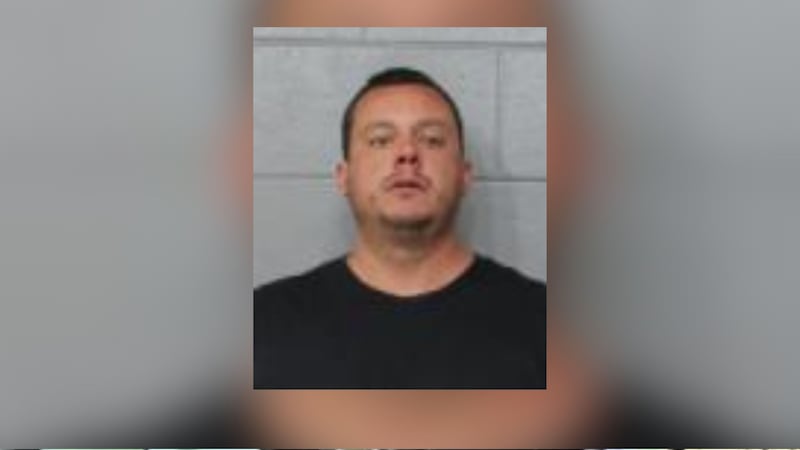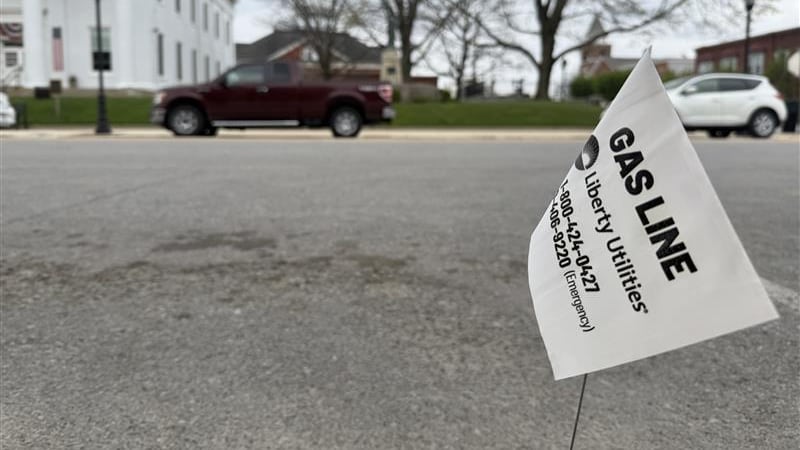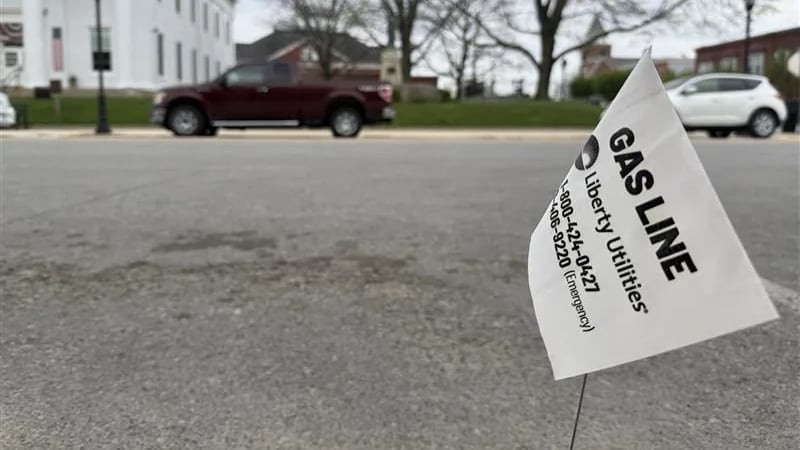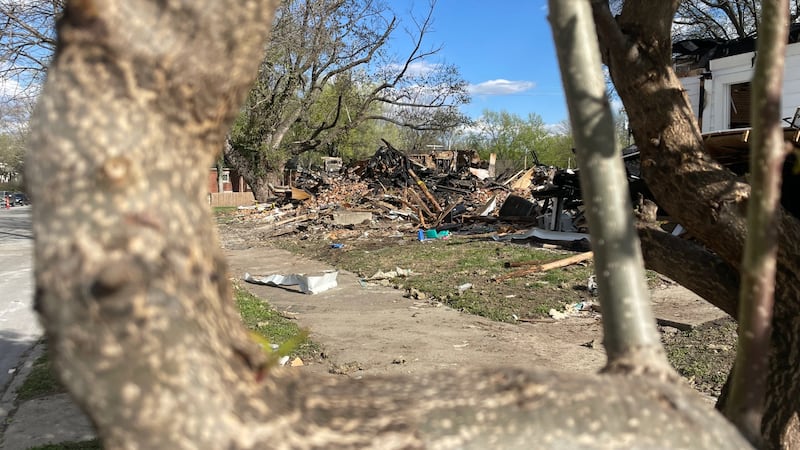Robert Courtney diluted thousands of prescriptions. How was he finally caught?
KANSAS CITY, Mo. (KCTV) - It was a crime that stunned Kansas City back in 2001, so monstrous many could not believe it.
A man who took a professional oath to “assure optimal outcomes for all patients” instead was diluting the medicines used to treat them.
Robert Courtney admitted to diluting tens of thousands of doses, preying on the people who trusted him to help with their treatments. Families of his victims said Robert Courtney was responsible for hundreds, if not thousands, of deaths.
Prosecutors said he did it out of greed.
Robert Courtney was sentenced to 30 years in federal prison, but now, after serving just 22 years, he’s scheduled to be released to home confinement at the end of the month.
CHEMOTHERAPY WAS NOT WORKING
Robert Courtney pleaded guilty to 20 counts of tampering with drugs. But he admitted in his plea agreement that he had been diluting drugs since 1992, affecting as many as 4,200 patients. Those patients were being treated for cancer, AIDS, and several other conditions.
Patients he treated and their families could not believe it, leaving them heartbroken and angry. Some family members of his victims contacted KCTV5 after our initial reporting of his upcoming release to share their stories.
Kat Duncan told KCTV5′s Angie Ricono about her dad, Harry Duncan.
“When you explain to people, how your dad died, what do you say?” asked Ricono.
“Cancer didn’t kill him,” Kat replied emphatically. “Robert Courtney killed him.”
Kat described her dad as a “big teddy bear with big, huge hands.” He was diagnosed with cancer, but his doctors said it was “very treatable.” Harry started chemotherapy, and Kat said he had no side effects from the first round.
“He didn’t have any reaction,” said Kat. “He wasn’t sick or anything.”
After several treatments, the tumor had grown. The chemotherapy wasn’t working. About a year into his treatment, investigators figured out why.
“They told us that dad was given like less than 1 percent of what he should have,” Kat said. “So he given nothing.”
As the disease progressed, Harry was hospitalized. When he got chemotherapy in the hospital, he finally had a reaction.
“He got his first dose in the hospital and oh, boy — he got so sick,” said Kat. But it was too late. By then the tumor was too big and additional surgery was no longer an option.
“So, we went home,” said Kat. “My dad wanted to die at home. It was just hard to see him get so small.”
ADDING UP THE CLUES
Years later, investigators believed that Robert Courtney had been diluting drugs starting in 1992. But this case didn’t break until 2001. Who knows how long it would have gone on if it were not for a pharmaceutical representative and a physician.
The pharmaceutical representative was Darryl Ashley, who worked for Eli Lilly. Ashlet sold a new chemotherapy drug called Gemzar, which promised to have fewer side effects. And feedback Ashley received from nurses at a local doctor’s office was remarkable — in fact, almost too good to be true.
“No one was getting sick,” said Ashley. “The nurse would say, ‘You should be excited because we’re using so much of your drug.’”
But the numbers didn’t add up. Ashley wasn’t selling as much of the drug as the nurses claimed to be using. For months, he tried to make sense of it.
“What if what everybody is saying is true?” wondered Ashley.
He eventually voiced his suspicions to Dr. Verda Hunter’s oncology office.
“Guys, based on what you’re telling me, and the information I’m getting from my company, he may be diluting,” Ashley remembered telling them.
He did not want to believe it.
“If I’m right, there’s something deadly wrong here,” said Ashley. “If I’m wrong, and he’s not doing it, I just hurt a man’s career.”
FBI STING
The thought of a pharmacist diluting medication intentionally was just too outrageous to believe. Even the FBI questioned if something this awful was truly possible.
Now-retired FBI agent Melissa Osborne, who was also a pharmacist, worked the case.
“I really didn’t think that this was something that was done intentionally,” said Osborne. “I thought that this could have been an error on the pharmacist or a mistake, or misunderstanding. I really didn’t expect it to be the crime that it ended up being.”
Osborne suggested a sting operation. Agents, through an oncologist, brought chemotherapy drugs from Courtney. Then it was sent to their lab for analysis. It was tested in less than 24 hours.
“All of the covert purchases had anywhere from I think around 28-30 percent down to almost 0 percent — just a mere trace (of medication),” said Osborne. “Basically nothing.”
Courtney’s pharmacy was raided and shut down.
COURTNEY’S ADMISSION
Osborne was the agent leading the questioning because of her background in pharmacy.
“He initially admitted that he had diluted these medications for a small number of patients for several months,” said Osborne. “He had made a pledge to his church for a million dollars, and he also had a very high tax bill and he needed a little bit of extra money.”
Osborne said Courtney’s bank accounts and investments totaled $19 million — $33 million in modern economy — a red flag that this was bigger than anyone could have imagined. The FBI considered his actions a public health crisis and set up a hotline for patients to come forward.
Eventually, Courtney took a plea deal to adulteration or mislabeling of drugs and tampering with drugs. He would serve 30 years and admitted to what he did. In the end, Courtney admitted to diluting 72 medications for over 4200 patients, affecting more than 98,000 prescriptions. While it was primarily cancer mediation, he also diluted prescriptions for fertility treatments, diabetes, AIDS — even eye drops.
Osborne said Courtney was motivated mostly by greed, but there was something else.
“There were some medications that tampered with that were like, $5,” said Osborne. “He really never thought that he would be caught. I think his only remorse is that he was caught.”
For more Robert Courtney coverage, click here.
Copyright 2024 KCTV. All rights reserved.







